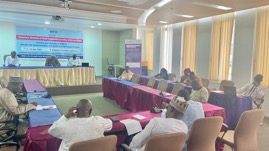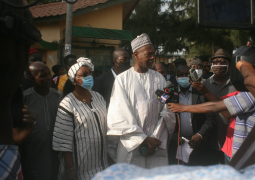
Post-Legislative Scrutiny (PLS) is a relatively new concept and practice of monitoring the implementation and evaluating the impact of laws and it aims to ensure that laws benefit citizens in the way originally intended by lawmakers.
The seminar comes within the framework of the Westminster Foundation for Democracy's support to strengthen the human and institutional capacity of the National Assembly.
Country representative of Westminster Foundation, Madi Jobarteh said the National Assembly has passed a huge number of laws with the sole intention and expectation that those laws will be fully implemented to bring positive change in the lives of Gambians.
He, however, said that Gambia has good laws but implementation remains the problem and every law passed provides for the creation of institutions and allocation of resources for the provision of goods and services that go to create opportunities and bring betterment to the lives of the people.
Mr. Jobarteh continued that it is also a known fact that limited implementation of laws in The Gambia is a problem and PLS does not only help to determine if the law is being fully implemented but also it tells if the laws are good or bad because of their impact on society.
PLS is a mechanism to determine if institutions are performing or not per the law and if the law itself is responsive to the needs of the people as intended by lawmakers, WFD country rep added.
“The National Assembly must be aware that when it passes laws, doing so with the full expectation that such laws will be fully implemented as designed and will bring the kind of change in the lives of the people as intended.”
Suwaibou Touray, chairman of the Public Petition Committee of the National Assembly, highlighted the importance of post-legislative scrutiny and said they always engage in scrutinising before they pass legislation, adding that they have other laws yet to be implemented.
He said the seminar is an opportunity for them to discuss fully and put effort into why those laws have not been implemented. He added that if they cannot be implemented, then they will have to revoke them because any law that has not been implemented is no law.





